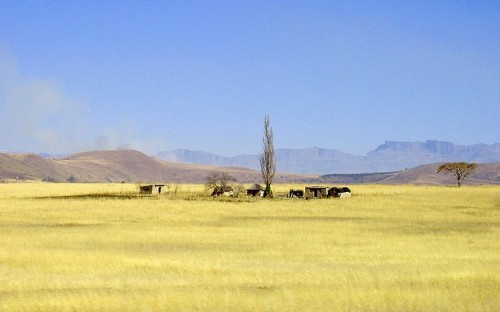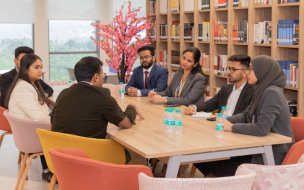Stefano Barazzetta, is a collaborator at Italy's first investment fund targeting social enterprises in developing countries, and he has East Africa and India in his sights.
Opes Impact Fund is Italy’s first donor-based impact investment fund. It has the ambitious goal of closing the finance gap that limits early-stage social enterprises and to support the work of disruptive pioneers and social entrepreneurs engaged in solutions to poverty alleviation.
Impact investment is creating a lot of buzz in the finance and international development world these days. The principle is to invest in social enterpsies on a for-profit basis, rather than just lending or donating money. Social enterprises are, of course, different to regular enterprises because they focus on social and economic outcomes as welll as profits.
Just last year, JP Morgan estimated that the potential profit for impact investors across just five sub-sectors could range from $183 billion to $667 billion over the next ten years, with invested capital ranging from $400 billion to $1 trillion. The Aspen Network of Development Entrepreneurs (ANDE) recently counted 199 impact investing funds worldwide. We sat down with Stefano, who graduated from the MIP Politecnico di Milano MBA programme in 2012, about the role the Opes Impact Fund could play in international development.
Impact investing was a natural career evolution for Stefano, who has a background in clean tech investing and spent time as a volunteer aid worker in Eastern Europe and in Sri Lanka after the Tsunami.
He graduated with an MSc in Environmental Engineering from Politecnico di Milano in 2001 and worked with several environmental agencies before deciding to get his MBA.
His last role before the MIP MBA was with IG Partners, a consultancy specialized in clean technology and renewable energy. At IG Partners, Stefano worked closely with Ambienta Sgr, the first Italian private equity fund focusing on clean tech and renewable energy. He worked on deals in solar, wind and biomass energy; electric/hybrid vehicles; energy storage, and waste treatment.
After he went into private equity Stefano started appreciating what the world of business can do for development. He decided to get an MBA to explore this further and landed an internship with ACRA, an Italian NGO focused on development in Africa and Latin America. He worked on a solar energy project in rural Senegal and also examined technological applications and viable business models for local social enterprises. Stefano was offered to remain with ACRA after the internship.
Stefano told us that impact investing is still a new concept and so he needs to explain the idea to people: "It’s not huge in Italy. There are only a handful of other funds, such as OLTRE which was founded ten years ago but only invests in Italy, and UMAN which launched in late 2012 and is yet to begin investments", he said.
Opes Impact Fund officially launched on the 28th of January in Milan, with a a conference titled “Social Enterprises: Innovative and Long-lasting Solutions to Poverty”. The conference presented four ambitious social entrepreneurs: Swasth India, active in the health sector in Bangalore; Mitra Bali Fair Trade; Village Energy, an innovative renewable energy project in Uganda; and Selco Power, a renewable energy project in India. There were about 250 guests and speakers from investment firms such as JP Morgan as well as from social enterprises.
Opes Impact Fund wants to focus on East Africa and India, targeting urgent issues such as the 800 million people who still have no access to water, the one million people who die from malaria every year, the one billion people who are suffering from chronic hunger and the 75 million children with no access to primary education.
Stefano joined the project in late September and has been finding potential investments. He’s already travelled to East Africa and will make the first investments later on in the year. Target sectors include environment, health, education, energy, agriculture, and fair-trade. The projects need to be evaluated for their development impact but the target is early stage companies who stand to benefit from an injection of capital and technical know-how.
“There is a huge need for capital for these companies. We don’t just want to invest in them, we also want to help them validate their business models. We’ll provide mentoring and technical assistance”, said Stefano.
The plan is to raise eight million euros over the next three years in order to make several investments of 50,000 to 400,000 euros. The Opes fund is a non-profit fund where the returns on investments will be put back into businesses.
Stefano holds that, “In this business our starting point is that charity isn’t enough to solve the problem of poverty. By investing in ventures that have a social impact, you can measure the real impact you have with the money deployed. We also do acknowledge that not all problems can be solved with a business approach.”
This may not be the best time to raise money but the Rockerfeller Foundation and JP Morgan predict that the amount of money that will be invested in the sector is set to increase.
Stefano feels that there is tremendous excitement today about impact investing in businesses that engage with poor communities tas customers and suppliers. The main issue now, he says, is to ensure that there are enough good companies to avoid a situation where there is, "More money available than there are companies”.
Student Reviews
Polimi Graduate School of Management
RECAPTHA :
cd
18
6e
a5








